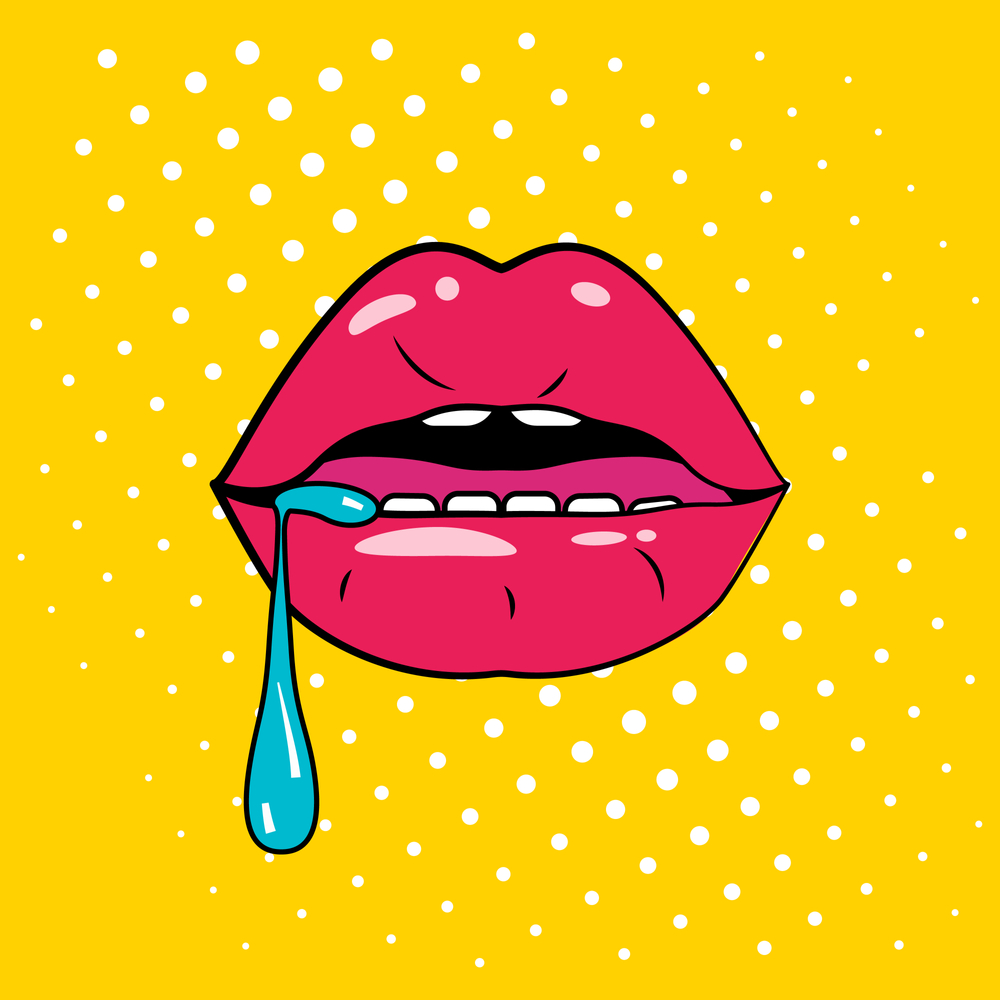Back when I was in elementary school, there were always kids who were pariahs. Kids with certain kinds of deformities, or speech impediments, or habits of drooling. We knew we were not supposed to mock these kids, and so we didn’t taunt them openly, but we shunned them in subtle ways nonetheless. We would avoid them, or whisper about them, or choose them last for our teams, thinking our behavior would go unnoticed. But of course it was noticed. Noticed by the poor kid herself, noticed by the other students, noticed even by the teachers. Like covert racism, such ostracizing was seen but never discussed.
It has recently come to my attention that I am now the pariah. At rest, my mouth often hangs open, and I tend to drool, at times quite profusely. I have taken to carrying a “mopping handkerchief” wherever I go, and when I eat I wear a bib to catch whatever falls out. My smile, which I’ve always considered my best feature, has become tight and lopsided now. And my gait is just beginning to get wobbly, a symptom that will get worse over time. The most pariah-like thing about me is the hoarse growl of my voice, at this point not even comprehensible to my husband.
Due to the pandemic I haven’t been out in public much, but when I do go out to the pharmacy where I use my phone’s speech assistant app, or for coffee outdoors with a friend where I use my more advanced text-to-voice computer, people notice that I’m damaged. I’ve seen them staring briefly at me then looking away with embarrassment. Most people are kind, but they are not interested in prolonging a conversation—and in all honesty, neither am I.
I have arrived here unpredictably as the woman who drools in public, a woman who people might wish to avoid. Inside my head and heart I am the same as I’ve always been, but who can see that? It is only natural to draw conclusions from what we see on the outside, the proverbial book cover, even though we know it’s only a fraction of the full story.
What strikes me is how bifurcated my life has become. There is the me that is observing the world as I always have, cogitating and writing with the same brain. And then there is the vastly altered outer/social self, the one who censors herself because certain things are too complicated to explain coherently, the one who is visibly weakening, the one who people feel a bit sorry for.
These two selves cannot be easily unified. I am in one modality when I’m alone, another in the presence of others. In my “before” life it seemed to me there was more overlap between the public and private selves, but now I’m wondering if this separation might always have been operative, that these two selves have always been entirely distinct from one another. All of us are different in solitude than we are in public, aren’t we? The difference for me now is only that I am unable to alter the way I present myself in public. No matter what I do, I cannot groom myself to appear more normal.
Does it matter, I ask myself. Not really. I am not in the business of making new friends or applying for new jobs. The people who write me off now are probably not people I would be fond of anyway. But I am sobered by thinking about how, for most of my life, I’ve relied on outer appearances to inform me as to whether I’m interested in knowing others. I haven’t assumed that everyone has a rich and interesting inner life that I would enjoy discovering. I have often erroneously assumed just the opposite, making quick judgments about people, assuming their inner lives were impoverished.
My bad. As a novelist I should know better. A novelist knows (at least when she’s writing) that everyone has a rich and complicated inner life. It might be challenging to uncover that inner life, but it’s there, trundling along, thinking thoughts that might surprise you.
So, when you see me drooling away at the table beside you in a coffee shop, look me in they eye, smile, and assume that behind my obvious damage, I’m thinking thoughts as interesting as yours.

Add Comment